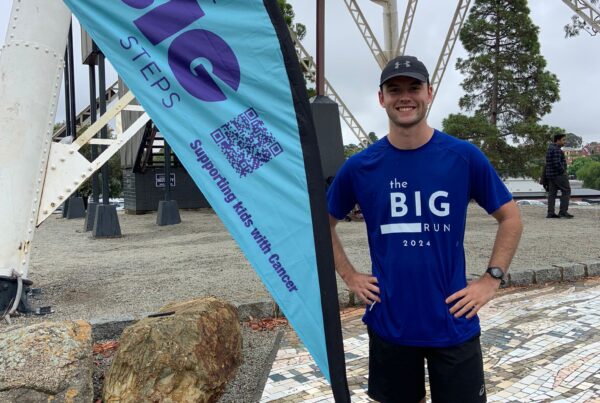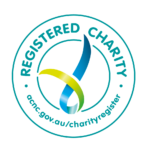It’s hard to wrap my head around that this time last year we first heard the words: “Your daughter has leukaemia”. This one sentence changed the course of our lives forever and whenever I am back at the Royal Children’s Hospital and see that stunned look on so many newly diagnosed parents’ faces that weight in my chest that I felt at the time brings a heaviness to my heart.
It’s quite incredible how you quickly you adapt to this new reality – I guess what are the alternatives? – and how you become an expert in the care of your child. I wanted to, and needed to, know everything there was about Sienna’s cancer and understand her treatment plan and all the medical jargon that came with that! The one area I didn’t learn about through her doctors or supporting medical team, but was something innately important to what I could do to support her recovery, came as a result of the first child we encountered when we were admitted to the Kookaburra oncology ward.
The confronting image of seeing a young girl of around 10 years of age learning to walk again outside of our room is still burnt into my mind a year later. The despair it caused me watching her skeletal legs struggling to hold up her waif-like body and celebrating each single step she managed to take. I knew nothing about the benefits of physical activity for kids undergoing cancer treatment, but I knew that I would encourage Sienna to move as much as a possibly could. And believe me this was a real challenge on some days, when you know how weak and lethargic they feel from the chemotherapy and associated side effects of treatment. It was also difficult to explain to a 2 year old why it was important she got up and moved around a bit, so I decided to make a game of it. Every day, even if it meant just moving about in her bedroom, she would have to walk herself to the window to spot the bunnies that lived outside and count how many we could find together.
Without realizing where my future would find me, this was the beginnings of what Little Big Steps was established for… finding a way to motivate and encourage kids undergoing cancer treatments to do physical activity. The research is supporting the benefits in doing so and we want to help educate the parents, as well as provide the interactive technologies to gamify the experience.
In the new year Cass and I will be carrying on the Christmas giving right into February when we distribute the Garmin Vivofit Jnr 2 to both the Royal Children’s Hospital and the Monash Children’s Hospital in Melbourne. We are hoping that having a fitness tracker will help motivate kids to get their steps up each day, as well as get rewarded for doing daily chores like brushing teeth and taking a shower (and I know these seem like everyday simple activities, but when your child’s mouth is filled with ulcers and they are too weak to stand in the shower, these become major mountains to climb and are essential to keeping their low immune systems germ free!).
I know that nothing can take away the agony of watching your child suffer through cancer and the daily anxiety about what the next day holds, but hopefully Little Big Steps efforts we are able to help improve recovery and look at preventative rather than rehabilitative measures to strengthening kids’ bodies during their treatment.




